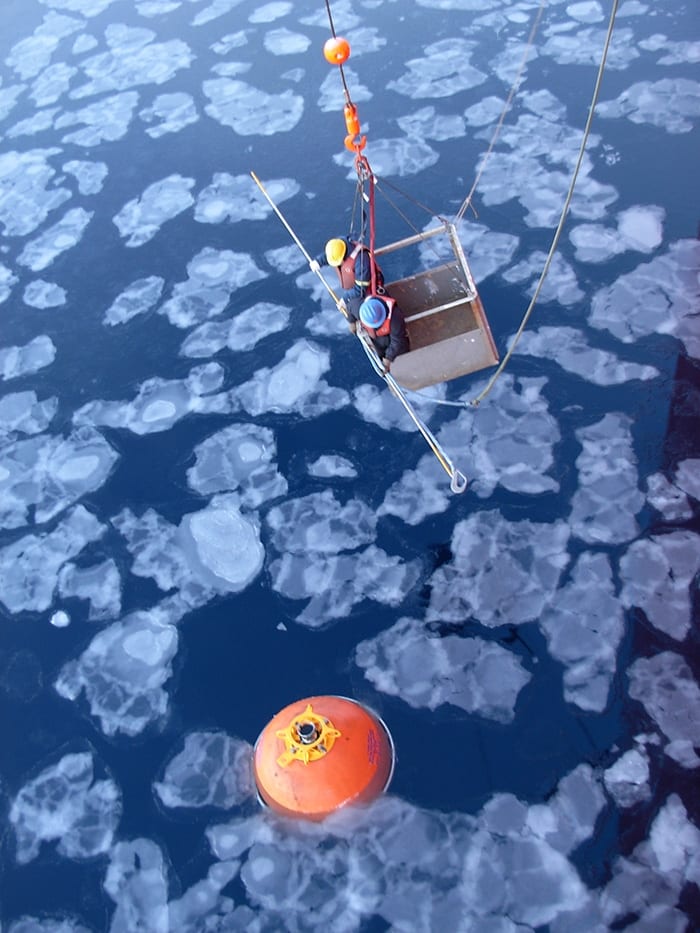Beaufort Gyre sea ice thins in recent decades, impacts climate
May 7, 2014
The accumulation and melting of sea ice in the Arctic has an enormous impact on the local climate, which in turn can affect the global climate. As the climate warms and Arctic sea ice retreats, it has become crucial to understand the complex ice-atmosphere-ocean dynamics within the Arctic. One major component in this dynamic is the Beaufort Gyre (BG), a wind-driven sea ice circulation and freshwater reservoir in the Arctic’s Beaufort Sea.
The BG is a notoriously dangerous area to observe because of its hostile conditions. Working around this, Krishfield et al. set out to investigate recent rapid sea ice decline in the BG, using data already collected between 2003 and 2012. The authors used data from moorings, ship-based surveys, and satellite radiometers to estimate ice thickness, which, when combined with satellite estimates of ice extent, can give an estimate of sea ice volume.
WHOI physical oceanographers Richard Krishfield and Andrey Proshutinsky and coauthors found a net sea ice decline over the 9 years studied, with record minima of ice volume in 2007 and 2012. Freshwater export from this region during the last 3 years was also observed. These data indicate that an anticyclonic climate regime that has been persistent in the BG since the late 1990s may be weakening, which may lead to a relatively warmer and wetter climate locally, but could produce cooling in the North Atlantic.
Source:
Journal of Geophysical Research: Oceans, doi:10.1002/2013JC008999, 2014
Authors:
R. A. Krishfield and A. Proshutinsky: Woods Hole Oceanographic Institution, Woods Hole, Massachusetts, USA;
K. Tateyama: Department of Civil and Environmental Engineering, Kitami Institute of Technology, Kitami, Hokkaido, Japan;
W. J. Williams, E. C. Carmack and F. A. McLaughlin: Fisheries and Oceans Canada, Institute of Ocean Sciences, Sidney, British Columbia, Canada;
M.-L. Timmermans: Yale University, New Haven, Connecticut, USA.

